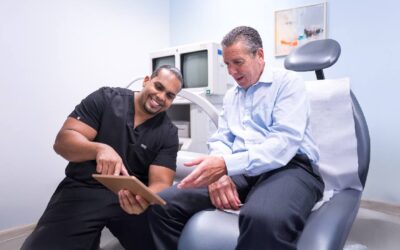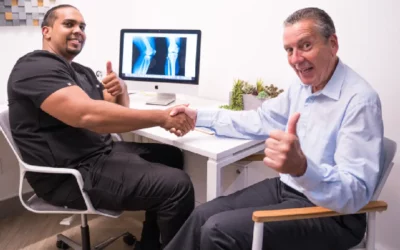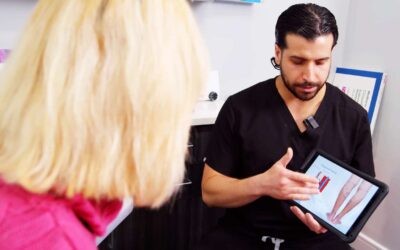What is Venous Insufficiency? Symptoms, Causes, Diagnosis, and More
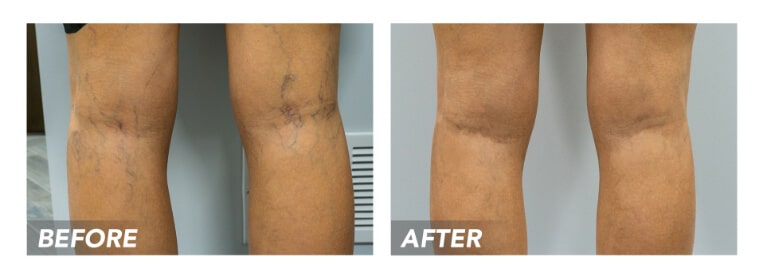
What is Chronic Venous Insufficiency (CVI)?
Chronic venous insufficiency (CVI) is the medical condition responsible for the vast majority of all vascular problems, such as spider veins, varicose veins, and leg ulcers. To understand chronic venous insufficiency, you must understand how veins work.
The human body consists of two types of blood vessels — arteries and veins. The arteries carry oxygenated blood from the heart to various parts of the body, and veins carry deoxygenated blood back to the heart. The veins often have to carry blood from the legs to the heart, i.e., moving against the gravity. To facilitate smooth one-way blood flow towards the heart (against gravity), the veins contain valves that act as one-way doors, ensuring smooth blood circulation from the legs to the heart.
Chronic venous insufficiency (CVI) is a medical condition wherein the valves in the veins collapse or malfunction. When the vein valves become weak or floppy, gravity pushes blood back down into the leg veins, leading to the gradual accumulation of blood in the leg veins. The continued accumulation of blood in leg veins leads to vascular dilation and the eventual formation of spider veins and varicose veins. Venous insufficiency is a chronic condition — the symptoms worsen with time. That’s why you must seek vein treatment without delay.
Our medical centers for vein treatment in New Jersey specialize in the diagnosis and treatment of chronic venous insufficiency. Our vein doctors always perform comprehensive diagnostic tests to identify the root cause of your vein problems, following which they curate a personalized vein treatment plan. We only perform minimally invasive spider vein and varicose vein treatments, such as radiofrequency ablation and laser ablation, ensuring safe results without harsh side effects or downtime. Please schedule an appointment to explore your vein treatment options.
Signs & Symptoms of Venous Insufficiency
Venous insufficiency is a progressive condition that gradually worsens with time. The initial signs and symptoms of vein disease are fairly mild and benign, so they usually go undiagnosed or undetected. Most people misattribute the initial signs and symptoms of vein disease to signs of aging. But as the condition worsens, you have a higher risk of major complications, such as skin discoloration, leg ulcers, and deep vein thrombosis.
Early warning symptoms of chronic venous insufficiency:
- Leg heaviness
- Restless leg syndrome
- Frequent leg cramps
- Leg swelling
- Leg pain
- Symptoms worsen at night
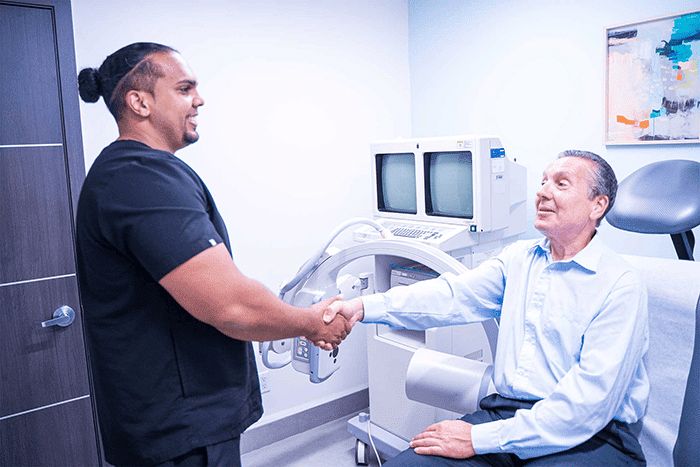
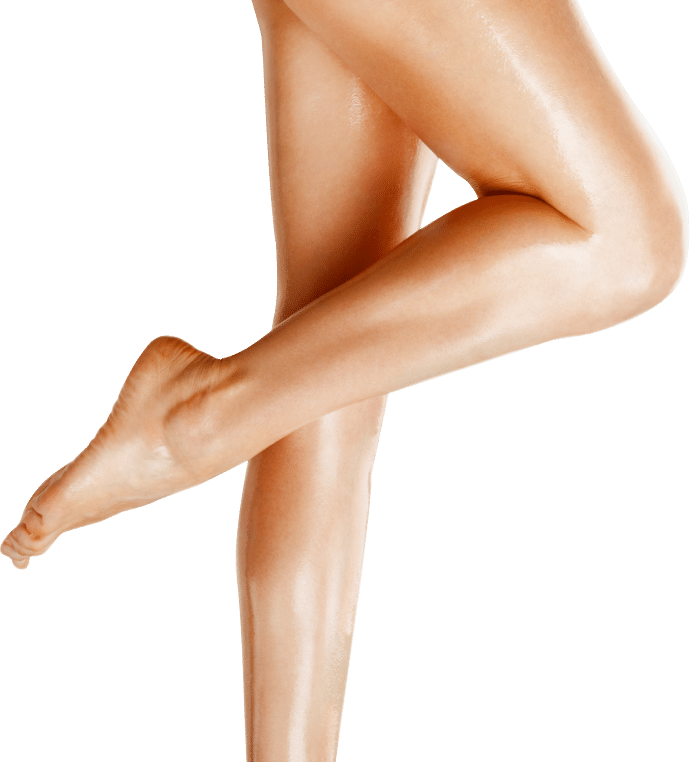
BOOK AN APPOINTMENT
Do you have any symptoms? Consult now with one of the Best Vein Specialist in New Jersey
Spider veins and varicose veins: the most visible symptoms
Spider veins and varicose veins are the most visible symptoms of chronic venous insufficiency. Spider veins are dense clusters of blood vessels that appear on your skin’s surface, looking like a dense mass of spider webs underneath the skin. Varicose veins are dense blood vessels that bulge out of the skin’s surface, often looking like a thick mass of twisted, tangled, and knotted ropes. Varicose veins are indicative of advanced chronic venous insufficiency.
Advanced complications of untreated venous insufficiency
- Burst varicose veins: as blood continues accumulating in varicose veins, the walls of the vein weaken, increasing the risk of burst veins, which can lead to profuse bleeding.
- Skin discoloration: the skin on your legs will look pale and discolored because of ineffective blood circulation in the leg veins.
- Leg ulcers: without effective blood circulation in the legs, the wounds in your legs can’t heal properly, leading to non-healing wounds (ulcers).
- Deep vein thrombosis: you may eventually develop blood clots in your leg veins, which is one of the most dangerous complications of untreated chronic venous insufficiency.
Risk Factors of Venous Insufficiency:
- Genetic predisposition: you have an extremely high risk of chronic venous insufficiency if one or both of your parents have a history of vein problems.
- Biological sex: women are more likely to develop vein disease than men, and approximately 50% of all women suffer from spider veins and other vein problems.
- Pregnancy: the risk of vein disease significantly increases when you’re pregnant.
- Medical history: you have a higher risk of vein disease if you have a history of vein problems.
- Occupation: people with sedentary jobs that involve long periods of sitting or standing still have a higher risk of vein disease and spider veins.
How is Venous Insufficiency Diagnosed?
Our vein doctors perform a duplex ultrasound to diagnose chronic venous insufficiency. Duplex ultrasound is a vascular imaging test that involves channeling ultrasound energy to visualize the direction of blood flow in leg veins and determine if you have chronic venous insufficiency. After diagnosing vein disease, the vein doctor may recommend one of the following minimally invasive procedures: radiofrequency ablation, laser ablation, venaseal, ambulatory phlebectomy, or sclerotherapy.
CVI FAQs
Do varicose veins cause high blood pressure?
Yes. If you have varicose veins and chronic venous insufficiency, more blood will accumulate in your leg veins, which leads to increased blood pressure.
Does high blood pressure cause varicose veins?
High blood pressure increases the risk of damaged vein valves, which, in turn, increases the risk of chronic venous insufficiency and varicose veins.
What is CVI in medical terms?
CVI, short for chronic venous insufficiency, is a medical condition wherein the collapse of vein valves leads to backward blood circulation and the accumulation of blood in leg veins, leading to a wide range of vascular problems, such as spider veins and varicose veins.
How to treat a collapsed vein?
If your vein valves are collapsed, the vein doctor will perform radiofrequency ablation or laser ablation to destroy the diseased saphenous vein. Once the damaged vein is neutralized, the accumulated blood will reroute into healthier leg veins to restore optimal blood circulation to the heart. Since a diseased vein valve can’t be repaired, it must be removed or destroyed.
NJ Vein Doctors
Meet our team of New Jersey Vein Treatment Specialists
Vein Treatments are covered by most major medical insurances, including Medicare. Call us today to verify your insurance for FREE >
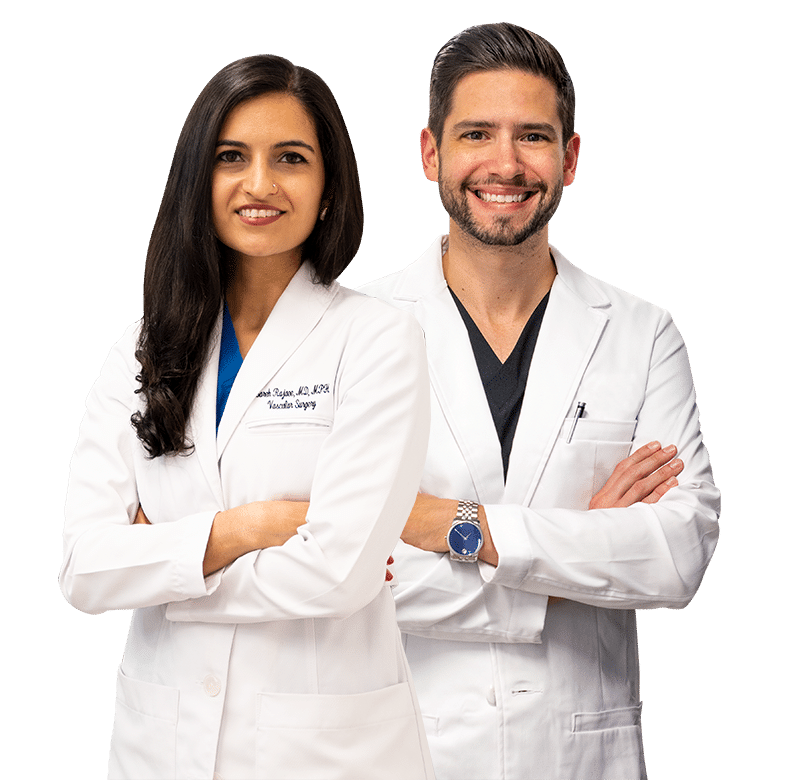
Meet our Team of Top Vein Specialists in New Jersey
Contact us
CALL US
Speak instantly with one of our team members; they will answer any questions you may have regarding insurance coverage, booking an appointment and our vein treatment locations. (973) 946-8082
BOOK APPOINTMENT
Visit our Book Appointment page and instantly request an appointment at the New Jersey vein center. We offer Free Insurance Verification before your appointment.
